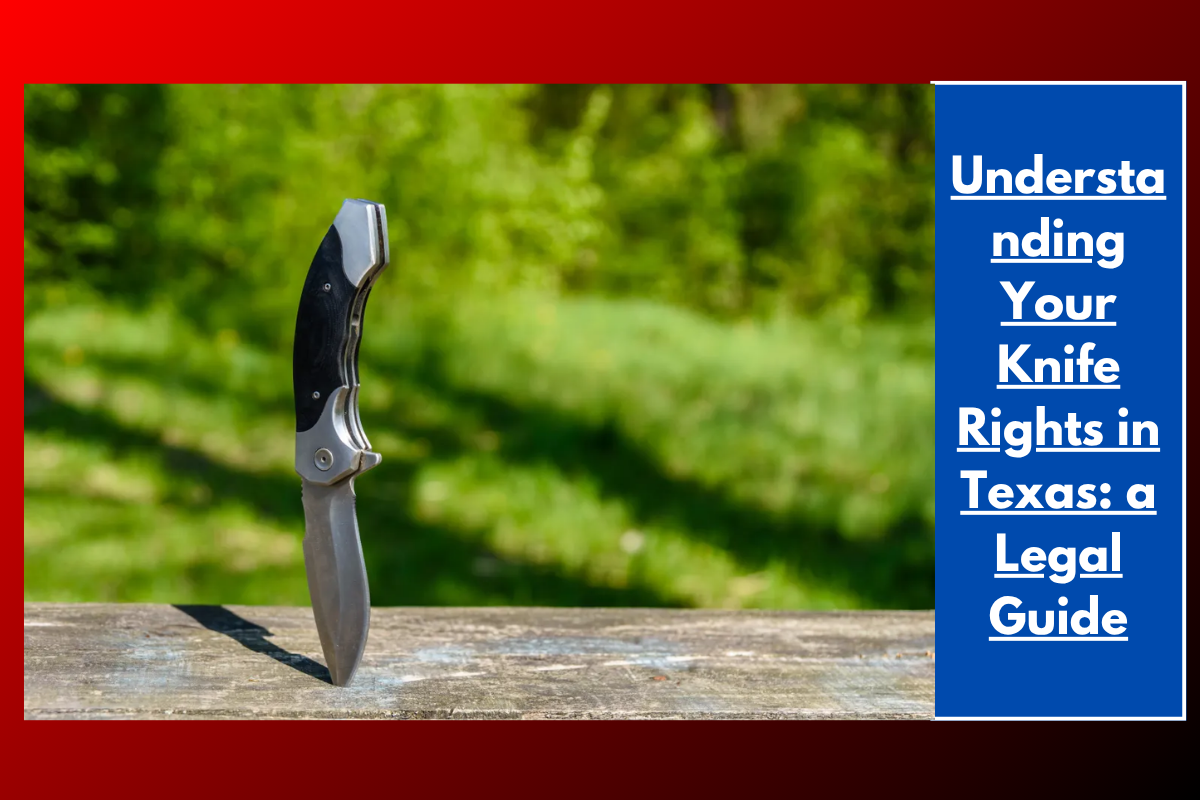Texas, known for its robust gun rights, also offers some unique freedoms when it comes to knives. Whether you’re an enthusiast or just want to know the rules for carrying a knife, understanding Texas knife laws is crucial for both residents and visitors. This guide will break down everything you need to know about your rights when it comes to knives in the Lone Star State.
1. Overview of Texas Knife Laws
Texas is generally known for its permissive stance on weapons, and knives are no exception. The state allows a wide range of knife ownership, with certain restrictions based on size, type, and location of carry. It’s important to note that knife laws in Texas are primarily governed by state legislation, but local ordinances can also impose certain restrictions.
2. Types of Knives Legal to Own and Carry
Texas law divides knives into various categories, each with its own rules regarding ownership and carry. Here’s a breakdown:
a. Non-Restricted Knives
Texas law allows for the ownership and carrying of a variety of knives, including but not limited to:
Pocket knives: Common folding knives are widely accepted and can be carried openly or concealed.
Fixed-blade knives: These knives with a full tang are generally legal to carry and own without restrictions, as long as they aren’t used for illegal purposes.
b. Restricted Knives
There are a few knives that are regulated by Texas law:
Switchblades (automatic knives): Texas law allows the possession and carry of automatic knives, but only under specific conditions. It is legal to carry a switchblade if the blade is under 5.5 inches and you’re in a lawful situation.
Ballistic knives: These knives that shoot out blades are illegal to own or carry in Texas.
c. Location-Based Restrictions
There are certain places where knives—especially larger knives—cannot be carried. These include:
Schools: It’s illegal to carry knives on school grounds or within 300 feet of a school property.
Government buildings: Knives are prohibited in government buildings, including courthouses and post offices.
Private property: Property owners can prohibit knives on their premises, so always check for signage before carrying.
3. Concealed vs. Open Carry
Texas law allows the open carry of knives that are under 5.5 inches in length. However, there are some guidelines you must follow:
Concealed carry: It’s illegal to carry a knife in a concealed manner if it’s a blade longer than 5.5 inches unless you have a concealed handgun license (CHL) that authorizes you to carry larger knives concealed. Otherwise, it is considered a Class A misdemeanor or, in some cases, a felony.
Open carry: Knives under 5.5 inches in length can be openly carried in most places, though certain areas (like schools or government buildings) still prohibit them.
4. The Legal Carry Limits
While Texas law permits the ownership of knives in general, there are certain size limits and restrictions on carrying larger knives:
5.5 inches blade length limit: For knives that exceed 5.5 inches, such as larger fixed-blade knives, concealed carry is illegal unless you hold a concealed handgun license (CHL) that also applies to knives.
Exceptions for certain areas: Some exceptions apply when carrying knives in specific situations, like while hunting, camping, or on your private property.
5. Carrying Knives for Protection
Knives can be carried for self-defense in Texas, but there are some guidelines to keep in mind:
Self-defense: If you use a knife for self-defense, the circumstances surrounding the event will be considered. If the use of a knife is deemed reasonable in the situation, Texas law allows the person to defend themselves. However, using a knife in an unlawful or aggressive manner can lead to criminal charges.
6. Knife Laws for Minors
In Texas, minors are generally restricted from carrying certain types of knives. While possession is usually legal, carrying a knife over 5.5 inches in length can result in criminal charges for minors unless they are on private property or have parental consent for specific uses.
7. Knife Sales and Transfers
Texas has a relatively open policy for selling and transferring knives. It is legal to sell knives, but certain types (such as switchblades or ballistic knives) are subject to restrictions. When selling a knife to a minor, the seller must ensure that the knife is legal for the minor to possess and that they are following applicable laws.
8. Local Ordinances and Restrictions
Though Texas laws are generally permissive, local cities and counties may pass their own ordinances regarding knives, especially when it comes to carrying them in public places. Always check with your local jurisdiction to ensure there aren’t additional restrictions that might apply to where you live or travel within the state.
Texas is one of the most knife-friendly states in the U.S., but there are still some important rules to follow. Understanding your rights and restrictions when it comes to knife ownership, open carry, and concealed carry will ensure that you stay within the law. Whether you’re a knife enthusiast, collector, or just want to carry a practical tool for daily use, Texas provides plenty of freedom with a few basic rules to ensure safety and legality.
SOURCES
[1] https://tkellknives.com/knife-laws-in-texas-understanding-your-rights-and-restrictions/
[2] https://www.akti.org/state-knife-laws/texas/
[3] https://texascriminaldefensegroup.com/understanding-texas-knife-laws/
[4] https://www.tosahwi.com/blogs/texas-knife-laws
[5] https://www.click2houston.com/news/local/2025/04/18/what-are-the-laws-around-carrying-blades-knives-in-texas/














